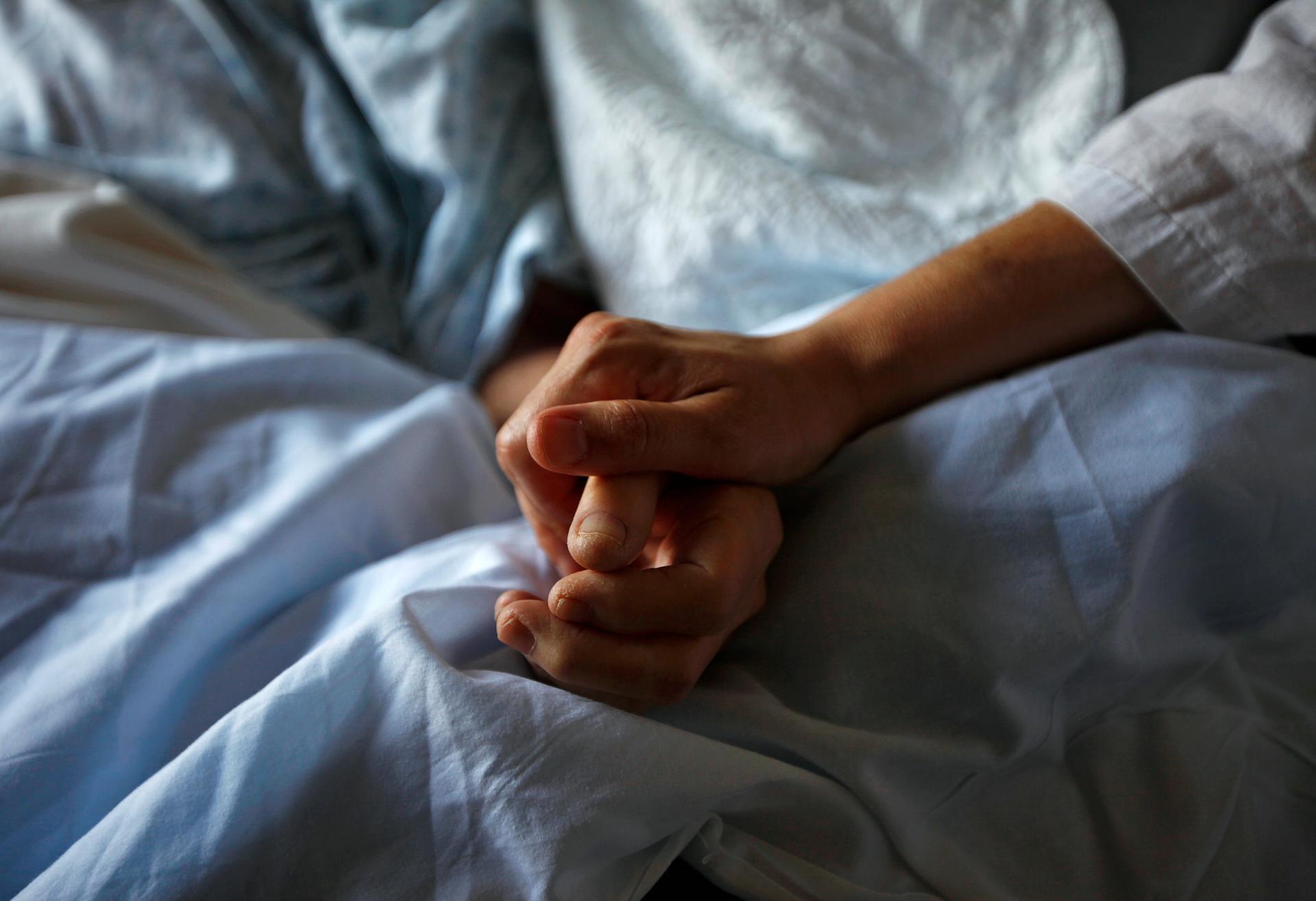A woman holds the hand of her mother who is dying from cancer during her final hours at a palliative care hospital in Winnipeg, Canada. July 24, 2010.
Many Americans may confront illnesses so serious that they are life threatening. These diagnoses may come with treatment attempts and hospital stays. What they may not include are honest and open conversations about the final stages of life.
oembed://https%3A//www.youtube.com/watch%3Fv%3DMZcwYThcqnM
Among the guests: Atul Gawande, author of a pathbreaking book on dealing with end-of-life issues. In his book, "Being Mortal,'' he says unblinking attention early to basic end-of-life questions could improve the last years of many and save our health system billions.
Four basic questions he says every family member should have answered before life-threatening trauma or disease are these: 1) Do you want to be resuscitated if your heart stops? 2) Do you want aggressive treatments such as intubation and mechanical ventilation? 3) Do you want antibiotics? 4) Do you want tube or intravenous feeding if you cannot eat on your own?
Many Americans may confront illnesses so serious that they are life threatening. These diagnoses may come with treatment attempts and hospital stays.
What they may not include are honest and open conversations about the final stages of life.
How might the patient want to live during these stages? What choices are most likely to bring a sense of peace and empowerment? How might family members be included in these discussions? A growing palliative care movement is encompassing these questions, bringing together doctors, patients and their families in a new and compassionate way.
This Forum event at the Harvard T.H. Chan School of Public Health examined this movement, taking a look at the Serious Illness Care Program system developed at Ariadne Labs as well as the upcoming launch of a national collaborative to test the use of this program in multiple healthcare systems in the US. You can participate in this conversation by tweeting them @ForumHSPH and using #docpatientconvos.
Part of: The Andelot Series on Current Science Controversies.
This webcast was presented in Collaboration with PRI’S The World and WGBH.
Every day, reporters and producers at The World are hard at work bringing you human-centered news from across the globe. But we can’t do it without you. We need your support to ensure we can continue this work for another year.
Make a gift today, and you’ll help us unlock a matching gift of $67,000!
